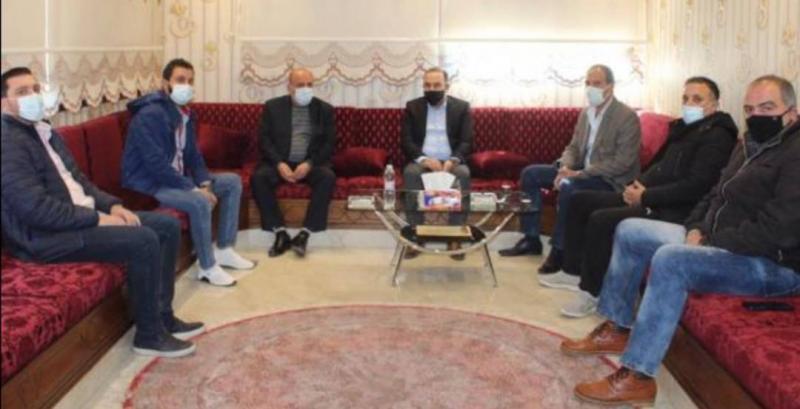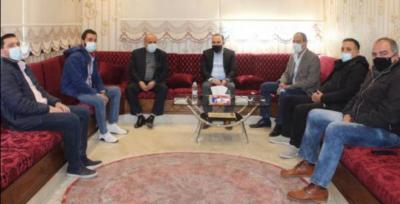The Minister of Agriculture and Culture in the caretaker government, Dr. Abbas Mortada, confirmed that the ministry will not obstruct the interests of the people of Baalbek, according to a feasibility study, practical vision, and plan prepared by the municipal council in consultation with stakeholders and specialists.
The National News Agency quoted Mortada as saying, after receiving a delegation of independent merchants from Baalbek at his residence in Tamnine al-Tahta, that the circumstances of the COVID-19 pandemic and the increasing number of cases in all regions necessitated the issuance of a general lockdown and public mobilization decisions to ensure the safety and health of citizens. Mortada pointed to State President Nabih Berri's directive to stand by the people, address their issues, and seek to alleviate their suffering. He emphasized that "there is no benefit from any decision unless it serves the people and facilitates their affairs," and that "the Ministry of Agriculture and Culture will not hinder the interests of the people of Baalbek in accordance with a feasibility study and practical vision and plan prepared by the municipal council in consultation with stakeholders and specialists."
Adel Awada spoke on behalf of the delegation of independent merchants from Baalbek, stating that they had been the most committed to the closure decisions in Lebanon, which resulted in severe financial losses that they could not afford, having lost the autumn and winter seasons. Therefore, it is essential to consider their situation in the upcoming phase and allow them to open their shops, with a commitment to adhere to all precautionary and preventive measures ensuring public safety. He urged the government to provide them with assistance to compensate for some of their losses, enabling them to continue without the need to close their institutions and businesses. Awada also appealed to the minister to issue a decision allowing the reopening of the road adjacent to the Baalbek archaeological site, which had been closed during the implementation of the cultural heritage project, causing a severe traffic crisis in the city due to the cancellation of a main exit that facilitated traffic and stimulated commercial activities and the economic cycle.




